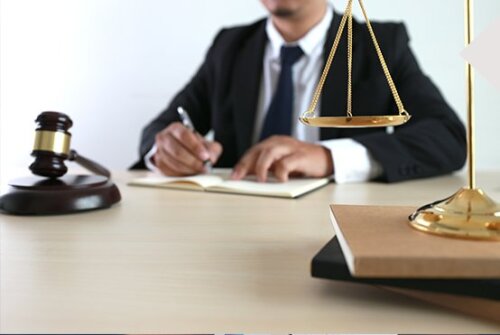Best General Litigation Lawyers in Bnei Brak
Share your needs with us, get contacted by law firms.
Free. Takes 2 min.
List of the best lawyers in Bnei Brak, Israel
About General Litigation Law in Bnei Brak, Israel
General litigation covers disputes that are resolved in Israel's civil and criminal courts. In Bnei Brak, as in the rest of Israel, most civil disputes start in the Magistrate Court that serves the area. More complex or higher-value cases, and appeals from the Magistrate Court, are handled by the Regional Court in the relevant judicial district, and the Supreme Court in Jerusalem is the highest judicial authority for appeals and constitutional petitions. General litigation includes contract disputes, torts, property and landlord-tenant conflicts, debt collection and enforcement, employment claims, consumer disputes, and procedural matters such as injunctions and contempt applications.
Local lawyers in Bnei Brak combine knowledge of national law with familiarity with local court practices, community norms and language needs. Proceedings are conducted in Hebrew, and many lawyers also work in Russian, English or other languages common in the area.
Why You May Need a Lawyer
There are many situations where consulting or hiring a lawyer is important. Common reasons include:
- You received a lawsuit or a legal notice and need to respond within a deadline.
- You are planning to sue another party for breach of contract, unpaid debt, property damage, personal injury or other civil wrongs.
- You need help enforcing a court judgment, collecting debts or seizing assets.
- You are involved in a landlord-tenant dispute, eviction process or housing-related claim.
- Your employment rights have been violated or you face wrongful termination or wage disputes.
- You require urgent relief such as a temporary injunction or order to preserve evidence or property.
- You want to evaluate settlement offers, negotiate a compromise or pursue mediation or arbitration.
- You need advice about procedural requirements, costs, potential remedies and the strength of your case before taking action.
Local Laws Overview
Key aspects of Israeli law and local practice relevant to general litigation in Bnei Brak include the following:
- Court structure and jurisdiction - Most civil matters begin in the Magistrate Court that serves Bnei Brak. Regional Courts handle appeals and more complex high-value matters. The Supreme Court handles final appeals and petitions for extraordinary relief. Knowing which court has jurisdiction is a crucial early step.
- Procedural rules - Israeli civil procedure sets timelines for filing claims, serving documents, submitting evidence and appealing. There are formal requirements for pleadings and for presenting evidence at hearings. Missing deadlines can forfeit rights, so prompt action is essential.
- Alternative dispute resolution - Mediation and arbitration are commonly used to resolve disputes faster and with lower cost. Many courts encourage or require mediation attempts before trial in certain cases.
- Evidence and disclosure - Parties must support their claims with documents, witness testimony and expert reports when relevant. The courts have procedures for document disclosure and for handling contested evidence.
- Enforcement - Winning at trial is only the first step. Enforcement of judgments is carried out through the execution system. The successful party may need to register the judgment, request attachment, levy bank accounts or pursue sale of assets through enforcement authorities.
- Costs and fee awards - The court may order the losing party to pay court fees and part of the prevailing party's legal costs, but full recovery of fees is not always guaranteed. Parties should budget for lawyer fees, court fees and possible enforcement expenses.
- Statutes of limitations - Deadlines for bringing different types of claims vary. Because limitation periods are strict, early legal consultation is recommended to preserve rights.
Frequently Asked Questions
What should I do first if I receive a court summons or claim?
Read the documents carefully and note any deadlines for response or appearance. Contact a lawyer immediately to assess the claim, prepare a defense or file a timely response. Missing a deadline can lead to default judgment against you.
How long does a civil lawsuit usually take in Israel?
Case length depends on complexity, court workload and whether the case settles. Simple disputes may resolve within months if settled or resolved quickly. Complex cases with multiple hearings, expert evidence and appeals can take years. Early settlement or mediation can shorten the timeline.
Can I represent myself in court?
Yes, individuals can represent themselves in many civil cases, but the legal system has formal rules and procedures that can be difficult to navigate. For anything but the most straightforward matters, an experienced lawyer will improve your chances of success and help avoid procedural mistakes.
How much will a lawyer cost in a general litigation matter?
Fee arrangements vary - common models include hourly rates, fixed fees for specific tasks, and conditional-fee or contingency agreements in some claim types. Expect additional costs for court fees, expert reports and enforcement. During your first meeting, ask the lawyer to explain the fee structure, likely total costs and whether legal aid or pro bono help is available.
What is mediation and should I try it?
Mediation is a structured negotiation assisted by a neutral mediator. It is often faster and less expensive than trial, and it allows parties to shape the outcome. Courts may encourage or require mediation in appropriate cases. Discuss mediation with your lawyer to evaluate whether it is likely to meet your objectives.
How do I enforce a judgment if I win?
Judgment enforcement involves registering the court judgment with enforcement authorities and pursuing measures such as bank account freezes, wage garnishment, liens on property or asset seizures. Enforcement actions have their own procedures and costs. A lawyer or enforcement specialist can guide you through the practical steps.
What evidence is most important in civil litigation?
Written contracts, invoices, correspondence, receipts, photographs, expert reports and witness statements are commonly crucial. Preserving documents and making a clear timeline of events helps your case. Avoid destroying or altering evidence, as that can lead to adverse inferences or sanctions.
Are there special considerations for disputes in Bnei Brak because of the community?
Bnei Brak has specific community norms and a high concentration of religious institutions and businesses. Parties may prefer lawyers who understand local social dynamics and language needs. In some community disputes, informal mediation or communal arbitration mechanisms may also be relevant, but these do not replace formal legal remedies when rights are at stake.
How do appeals work after a verdict?
After a trial judgment, the losing party may have the right to appeal to the Regional Court. Appeals focus on legal or procedural errors rather than re-hearing all facts, though some new evidence may be allowed in limited circumstances. Appeals have strict timelines and formal requirements, so consult a lawyer quickly to preserve appeal rights.
Can I get legal aid or low-cost assistance?
Legal aid may be available for those who qualify financially and for certain types of cases. The Israel Bar Association, the Legal Aid Department and local non-profit legal clinics can provide guidance about eligibility and available services. Many law firms also offer initial consultations at modest cost or on a fixed-fee basis.
Additional Resources
If you need more information or assistance, consider contacting the following types of bodies and organizations in Israel:
- The courts administration or the clerk of the court that serves Bnei Brak for procedural questions and filing guidance.
- The Israel Bar Association for information on lawyer listings, ethics and professional standards.
- The Ministry of Justice or the Legal Aid Department for information about public legal aid and eligibility.
- Local community legal aid clinics and non-profit organizations that provide counseling and sometimes representation in civil matters.
- Mediation and arbitration centers for alternative dispute resolution services and certifications.
- Consumer protection authorities and labor enforcement units for specialized disputes in those fields.
Next Steps
If you think you need legal help with a general litigation matter in Bnei Brak, follow these practical steps:
- Act quickly - check any deadlines on court papers or statutory limitation periods and do not miss them.
- Gather documents - collect contracts, receipts, messages, photographs, invoices, medical reports and any written communications that relate to the dispute.
- Make a timeline - write a clear chronological summary of the events and dates involved in your case to help your lawyer assess your position.
- Find the right lawyer - look for a lawyer who handles litigation in the relevant area (contracts, employment, property, etc.), who is familiar with the local courts and who communicates clearly in your preferred language.
- Ask about fees and strategy - during the initial consultation, ask about likely outcomes, estimated costs, alternative dispute resolution options and a realistic timeline.
- Consider settlement options - weigh the costs and risks of trial against settlement offers and mediation. A negotiated solution may preserve time, money and relationships.
- Prepare for court or ADR - follow your lawyer's advice about presenting evidence, preparing witnesses and complying with procedural rules.
Getting clear, early legal advice will help you preserve your rights and shape a practical strategy. The legal system provides remedies, but navigating the process efficiently often requires professional support.
Lawzana helps you find the best lawyers and law firms in Bnei Brak through a curated and pre-screened list of qualified legal professionals. Our platform offers rankings and detailed profiles of attorneys and law firms, allowing you to compare based on practice areas, including General Litigation, experience, and client feedback.
Each profile includes a description of the firm's areas of practice, client reviews, team members and partners, year of establishment, spoken languages, office locations, contact information, social media presence, and any published articles or resources. Most firms on our platform speak English and are experienced in both local and international legal matters.
Get a quote from top-rated law firms in Bnei Brak, Israel — quickly, securely, and without unnecessary hassle.
Disclaimer:
The information provided on this page is for general informational purposes only and does not constitute legal advice. While we strive to ensure the accuracy and relevance of the content, legal information may change over time, and interpretations of the law can vary. You should always consult with a qualified legal professional for advice specific to your situation.
We disclaim all liability for actions taken or not taken based on the content of this page. If you believe any information is incorrect or outdated, please contact us, and we will review and update it where appropriate.












